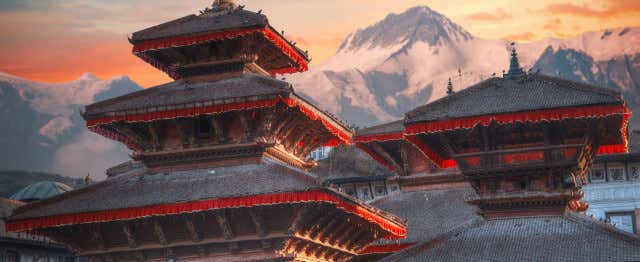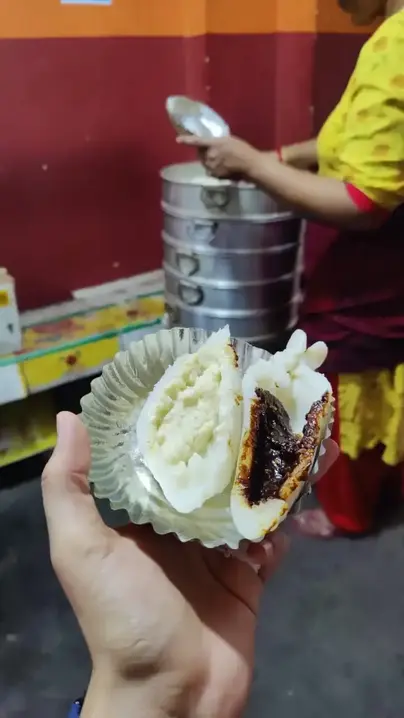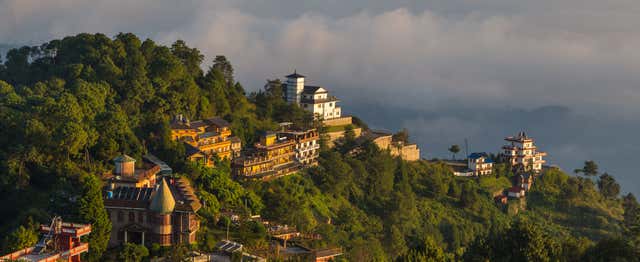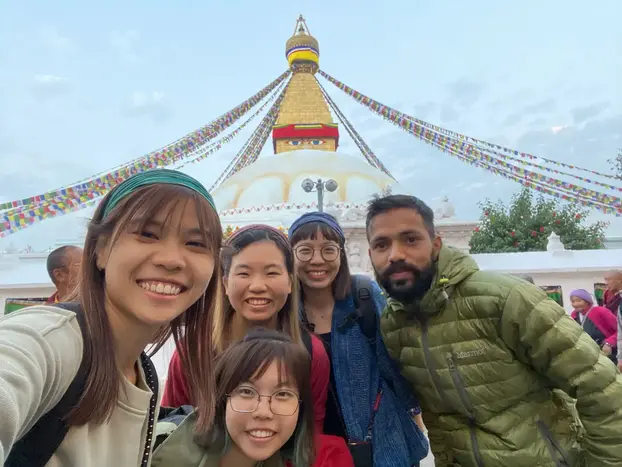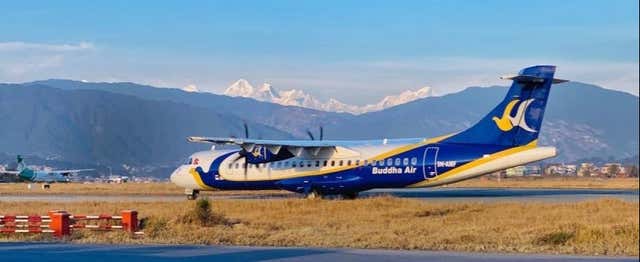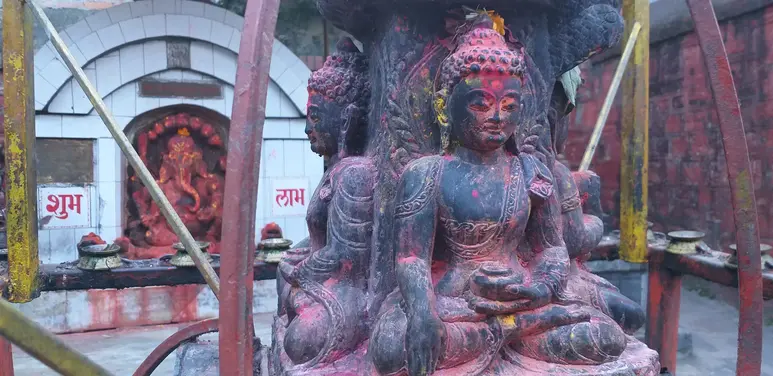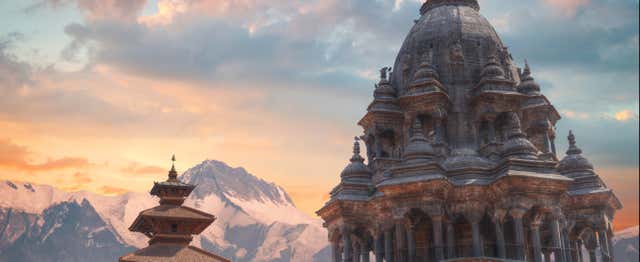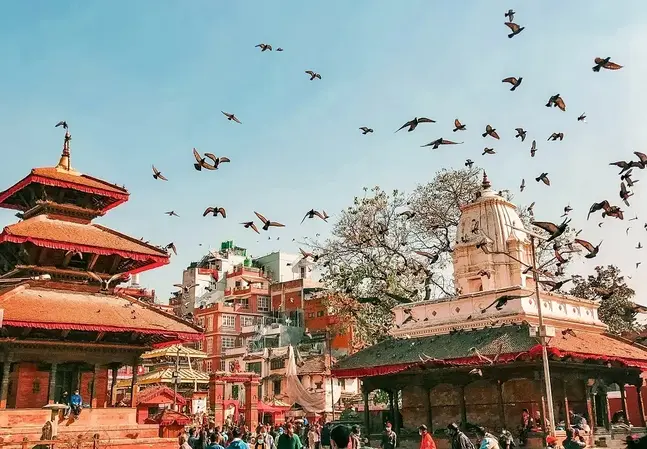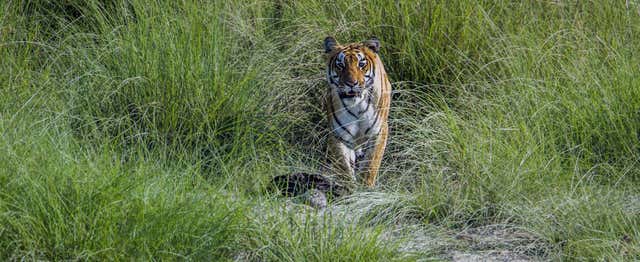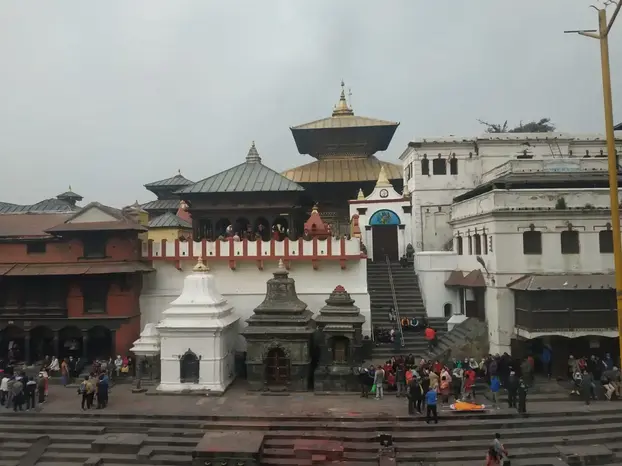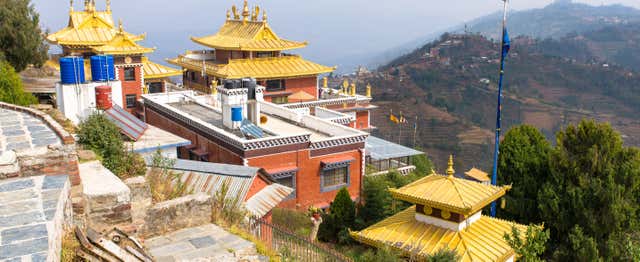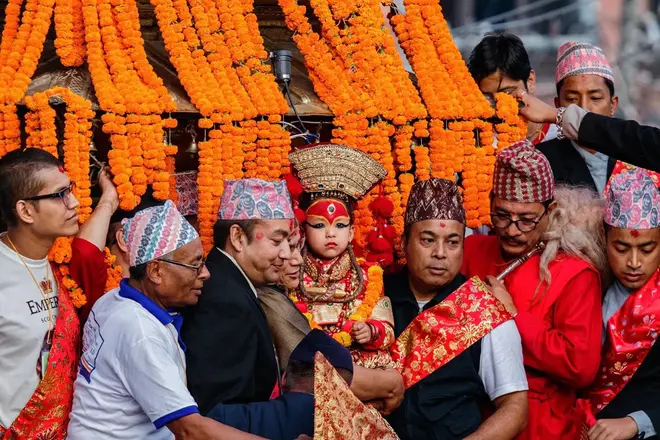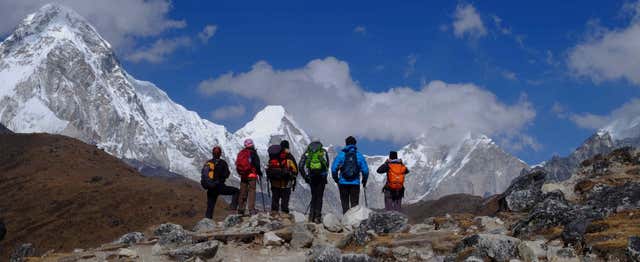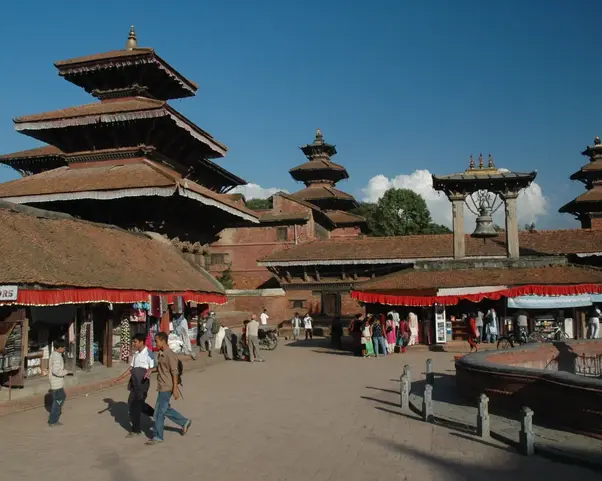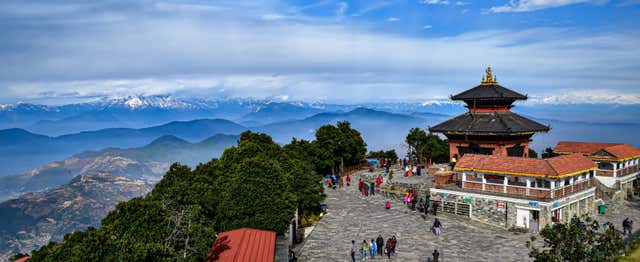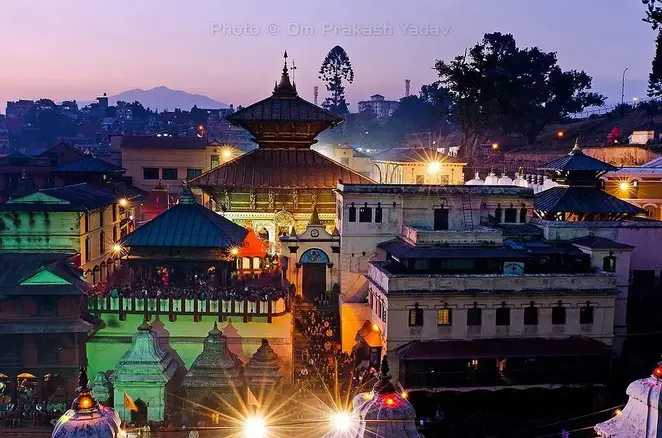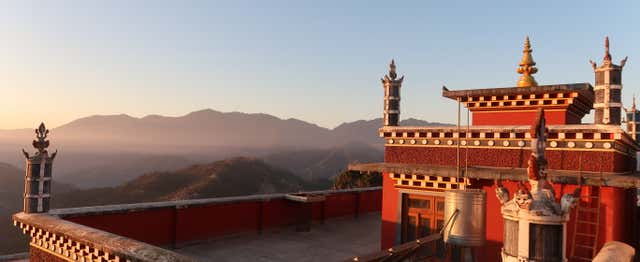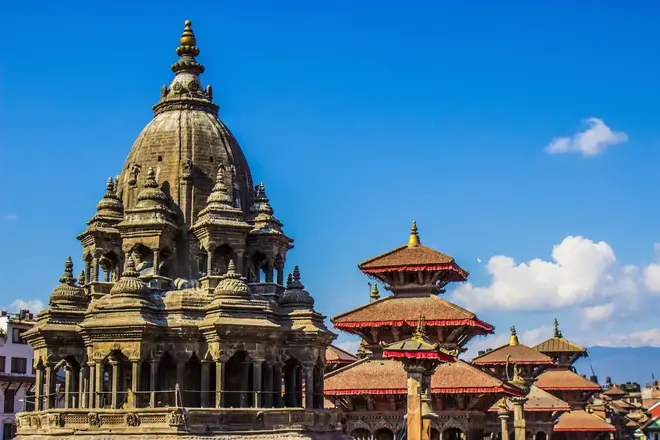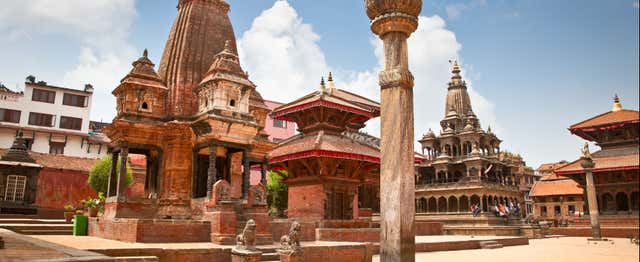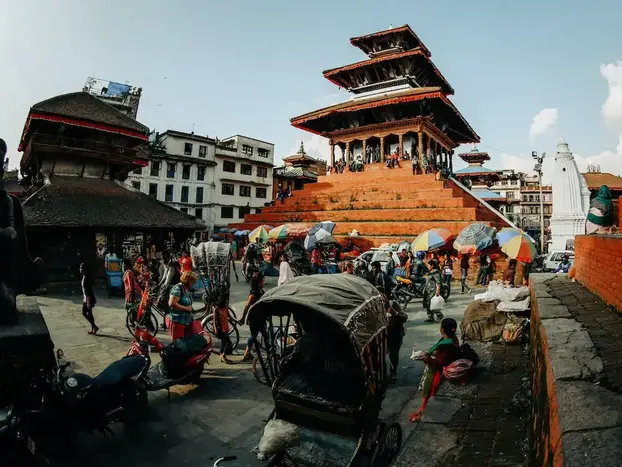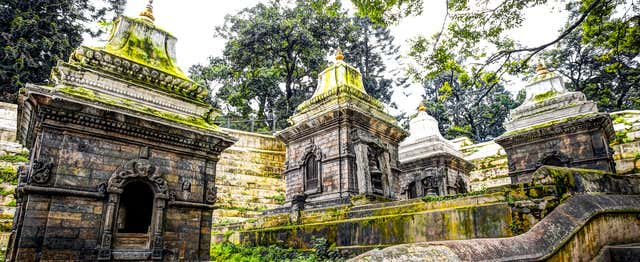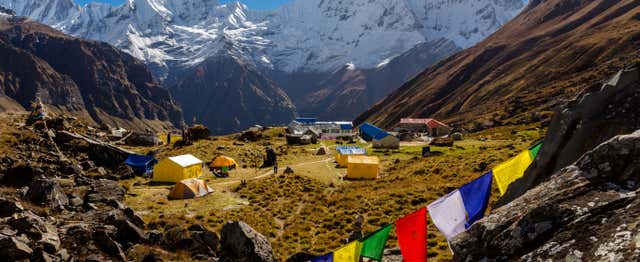Things to Do in Kathmandu
Unlike other site seeing tours, my tour focuses on entertaining the guest with the amazing heritages sites along with the chance to taste different local foods at famous places which are hard to discover by the non-locals.
We will choose the inner route walk from Thamel to Kathmandu Durbar Square.
We will explore Asan Bazar in between, which was the trading point of Nepal , India and Tibet from the medieval period.
Market offers varieties of goods that are transported from the Himalayan region. And there, we can see the old-structured temples and stupas.
The food items that we will taste:
1. Momo(Dumpling) ,Rs. 200-350 per plate.
2. Yomari(Newari sweet bread),Rs. 50 per piece.
3. Lassi(a blend of yoghurt,water and spices), Rs 100-150 per glass.
4. Bara(thick bread made up of black lentil), Rs 100-150 per piece
5. Selroti(sweet bread made of flour)
Rs.30-50 per peice
6. Laphing (Noodle dish in Tibetan cuisine)
7. Various non-veg items served in Nepali style.
8. Papadi Chat. ( Fried dough tossed in sweet and spicy sauce )
9. Sweet items in famous sweet shop.
Note: The food items can be removed or added as per your choice and the prices may vary in little amount.
Hey Wanderers! 👋
Ready to lace up your walking shoes and embark on a journey of discovery? Book your spot on our Pashupatinath and Boudhanath Walking Tour today and get ready to experience Kathmandu like never before. We can't wait to share this unforgettable adventure with you!
Why Walk with Me?
- Immersive Experience: Step off the beaten path and explore Pashupatinath and Boudhanath on foot. This walking tour allows you to soak up the sights, sounds, and smells of these sacred sites in a way that simply can't be matched.
- Hidden Gems: My long-term experience of guiding will lead you to the way, you'll uncover hidden gems and secret spots that most tourists miss. From hidden courtyards to tucked-away shrines, every step of our journey holds the promise of discovery.
3. Go at Your Own Pace: Say goodbye to rigid schedules and hello to flexibility! I believe in giving walkers the freedom to linger where they please, whether it's snapping photos, chatting with locals, or simply taking in the scenery. This is your tour, your way.
4. Feel the Energy:
There's something magical about walking in the footsteps of pilgrims who have traversed these paths for centuries. Feel the pulse of Kathmandu's spiritual heartbeat as you stroll through bustling markets, past ancient temples, and along serene riverbanks.
Why Walk to Pashupatinath and Boudhanath?
1. Spiritual Splendor: At Pashupatinath, witness the timeless rituals of Hindu worship as devotees pay homage to Lord Shiva, the god of destruction and transformation. Marvel at the intricate architecture of the temple complex and feel the sacred energy that permeates the air. Along the banks of the Bagmati River, observe the solemn yet profound cremation ceremonies that take place, offering a glimpse into the cycle of life and death according to Hindu beliefs.
At Boudhanath, experience the serene beauty of one of the largest stupas in the world, adorned with the all-seeing eyes of Buddha. The tranquil atmosphere invites contemplation and reflection, offering a sanctuary for the soul amidst the hustle and bustle of Kathmandu.
2. Cultural Richness: Explore the vibrant tapestry of Nepalese culture as you wander through the bustling streets surrounding Pashupatinath and Boudhanath. Encounter colorful market stalls selling traditional handicrafts, aromatic spices, and delectable street food. Engage with friendly locals and learn about the customs and traditions that have shaped the identity of this fascinating region.
3. Architectural Marvels: Admire the awe-inspiring architecture and exquisite craftsmanship of Pashupatinath and Boudhanath. From the intricate carvings of the temple complex to the towering spire of the stupa, each site is a testament to the skill and dedication of the artisans who crafted them. Capture breathtaking views and timeless moments as you explore these iconic landmarks.
4. Insight into Hinduism and Buddhism: Delve deep into the rich tapestry of Hinduism and Buddhism as you visit Pashupatinath and Boudhanath in a single day. Gain a comprehensive understanding of the beliefs, practices, and philosophies that underpin these ancient religions. From the sacred rituals of Hindu worship to the profound symbolism of Buddhist iconography, our walking tour offers a unique opportunity to explore the spiritual heritage of Nepal.
5. Personal Growth: Embark on a journey of self-discovery and personal growth as you immerse yourself in the spiritual ambiance of Pashupatinath and Boudhanath. Whether you seek solace, enlightenment, or simply a deeper connection with the world around you, these sacred sites offer a transformative experience that will stay with you long after you've returned home.
#NOTE:
- It takes NRs 500-600 by taxi from meeting point to Pashupatinath Temple.
- The entrance fee in Pashupatinath Temple is NRs 1000. (Free for Indian Citizens)
- We have to walk for approximately 25 minutes to reach Baudhanath stupa, but if you are willing to take a taxi, it costs NRs 200-250.
- The entrance fee is NRs 400 in Baudhanath. (For SAARC -NRs 100)
Wait✋
"Visiting Kathmandu for a few days and haven't planned your sightseeing yet? That's perfect! I offer unique tours for short stays, cramming in the best experiences. Imagine this: a thrilling short hike with breathtaking 360-degree mountain views, witnessing a magical sunrise or sunset, and exploring UNESCO heritage sites – all in a comfortable time frame. I can also plan the tours as per your choice! And the best part? As a local guide with my car, I'll handle the transportation so you can relax and enjoy the journey."
Let’s Discover the basic beliefs and lifestyle of Nepalese People
Nepal is predominant a Hindu country with more than eighty percent following Hinduism , nine percent Buddhism and remaining Christianity, Islam, Sikhs, Jain and others. However, the intrinsic belief of normal Nepalese comprises the values from both Hinduism and Buddhism practices and worships deities from both pantheons. A running joke is that – an average Nepalese is 60 percent Hindu and 60 percent Buddhist, because they are seen celebrating and worshiping in every occasion, making it more than a hundred.
Every day is a festival in Nepal – we just don’t happen to know, because of the multiple ethnic groups and their own culture & traditions, something is always happening somewhere. Despite the popular everybody’s festivals, every ethnic group – more than 125 speaking their own language – have their own distinct style of worship to a variety of deities, following with a ceremony or rituals accordingly.
We will be walking from Paknajol to Swayambunath Stupa, around 2.2 km, for 35 minutes total (one way).
We will stop at two different temples - Indrayani Temple and Shobha Bhagwati Temple before arriving at Swayambunath Stupa.
To enter Swayambunath Stupa – travelers need to pay Rs 200 as entry fee. All the other attractions are free to enter, although you can make a small donation for the temple if you like.
Please note:
- Meals and transportation are not provided in this tour.
Embark on an enthralling walking journey through the heart of Kathmandu with the Asan Local Market and Kathmandu Durbar Square Tour, seamlessly transitioning into an exploration of the iconic Swayambhunath Stupa.
The experience commences in Asan, the city's oldest market, where a myriad of shops entice with local products, handicrafts, culinary delights, and aromatic spices. The vibrant market offers a vivid snapshot of local life, with bustling stalls nestled in narrow alleyways filled with the rich essence of Nepalese culture.
From Asan, the journey unfolds towards the historic Kathmandu Durbar Square, a UNESCO World Heritage Site. Immerse yourself in the marvels of ancient architecture, intricately carved wooden structures, and the captivating living history that envelops this cultural nucleus. Engage in tales of opulence and spirituality, gaining profound insights into the city's heritage.
The tour then meanders to the renowned Swayambhunath Stupa, affectionately known as the Monkey Temple, presenting sweeping panoramas of the Kathmandu Valley. Explore this ancient religious sanctuary adorned with prayer flags and ornate carvings, soaking in the spiritual aura that saturates the surroundings.
This distinctive fusion of vibrant local market life, historical opulence, and spiritual tranquility crafts an indelible experience, providing profound insights into Kathmandu's diverse tapestry.
Note:
Kathmandu Durbar Square Entrance Fee: Rs 1000 per person
Swayambhunath Entrance Fee: Rs 200 per person
We will use a taxi for the journey from Kathmandu Durbar Square to Swayambhunath, with an approximate cost of Rs 500.
This tour will let you see how two different religions and cultures co-exist peacefully in Kathmandu. Pashupatinath lies on the banks of the Bagmati River and this Hindu Temple precinct consists of temples, ashrams, inscriptions and images.
The trip will last for about 2-3 hours. I will come to meet our destination in Kathmandu. As soon as all of our team members assemble, We walk to pashupatinath temple. At the site, I will brief you about Hindu Belief, the importance of Pashupatinath, its history and major festivals and how they are celebrated.
Please note:
The taxi is not included on the tour.
Kathmandu Heritage Tour with Living Goddess "Kumari" and Local Market includes a visit to Kathmandu Durbar Square through the tourism hub of Thamel Kathmandu.
The walk is easy and interesting as we can observe the local market of Thamel Bazar and Ashon. It is the greatest market in Nepal, especially for tourists. Whereas Ashon is the major market for locals where one can find everything they want at an affordable price.
Kathmandu Durbar Square is 30 minutes from Thamel the old royal palace of Nepal famous by the name Hanuman Dhoka Durbar. It is an ancient archeological remain that is a unique architect and is a ruling palace for the ancient king of Nepal. There are many historical temples having historical significance in the Basantapur area. It is a UNESCO World Heritage Site. The major attraction of Kathmandu Durbar Square is Kal Bhairav, Hanuman Dhoka Durbar, Hanuman Statue, Shiva Parbati Temple, Kumari Ghar, Basantapur Durbar, Ashok Vinayak, Talajeu Temple, and many more.
These approximately 2:15 hours walk around World Heritage Site gives you the lifetime memory with an expert tour guide.
Please note:
- The entrance fee of Kathmandu Durbar Square is Approximately USD 9
- you have to manage the money for your coffee and other necessities yourself.
Meet Milan, your knowledgeable Nepali guide, who will lead you on an unforgettable journey through the heart of Kathmandu, Nepal. Milan's tour is all about experiencing the vibrant culture, rich history, and hidden gems of this incredible city. Let's explore the highlights of this walking tour with Milan as your guide:
1. Thamel:
Begin your adventure in Thamel, a bustling area renowned as one of Kathmandu's top tourist destinations. Here, you'll find a plethora of quality hotels, including the iconic Kathmandu Guest House, and indulge in some culinary delights at notable eateries like Northfind Cafe and Roadhouse. Milan will also introduce you to one of the city's oldest pubs, Tomenjarey Pop Hotel, and many other hidden gems.
2. Asan Bazar:
Next, Milan will take you to the historical Asan Bazar. This market has deep roots in the city's history, as it was once a hub for traders from Tibet and various Asian regions. Discover the fascinating history of this market, the cultural melting pot it represents, and the significant presence of the Newari community with their ties to Tibet and the Lhasa trading route.
3. Indra Chowk
Six streets meet at Indra Chowk and link the square to Kathmandu's major localities. Its temples and bazaar draw streams of pilgrims and shoppers. The square is named after Indra, lord of heaven in Hindu mythology.
Indra Chowk is a ceremonial venue and major festival pageants and chariot processions pass through the square. During Indra Jatra, the chariots of Kumari, Ganesh and Bhairav are pulled through here. The chariot procession of Jana Baha Dyah Jatra also passes through the square.
3. Hanuman Dhoka:
Your journey continues with a visit to Hanuman Dhoka, where Milan will provide valuable insights into Nepali temple architecture, archaeology, and the local festivals that take place here. Learn about the Geodey Jattra, Indra Jattra, and Jatra Mins Festival, and immerse yourself in the vibrant atmosphere of these celebrations. Among them, the week-long Indra Jattra stands out as a captivating and immersive experience.
Naradevi temple
History
The temple is believed to have been established in the ninth century by Gunakamadeva, the founder of Kathmandu
On the tenth day of Dasain, Khadga Jatra is celebrated in the temple. Various swords (Khadga) are taken to the temple in a grand procession and revered with traditional tantric rituals. Buffalo slain in a single blow are sacrificed to mark the event of Nawami.[3]
Join Milan for an enriching Kathmandu walking tour, where you'll gain a deep appreciation for the city's culture, history, and local traditions. Discover the hidden treasures and stories that only a local like Milan can share, making your visit to Kathmandu a truly memorable and insightful experience.
There is a buzz around the place as devotees from all walks of life gather on the banks of the Bagmati.
As We reach the banks of the river opposite to the temple, the Bhatta (priest) is preparing for the Aarati. On the other side of the river, another priest is placing wood and getting ready for a cremation to take place. we are not the only one who are here to witness this, there are people young and old, local and foreign.
Everyone who is present here wants to indulge in the spiritual journey. One that they will remember for years to come.
There is something pacifying about Pashupatinath. Standing on the banks of the holy Bagmati, the temple is one of the most important Hindu shrines in the world. Devotees from all across the globe come visit the temple which has also been declared a UNESCO World Heritage Site. Built around the 5th century, this holy pilgrimage is said to have existed from the beginning of the millennium when a Shiva lingam was discovered here.
Tourists (non-Hindus) are forbidden from the temple itself; however, they can visit the exteriors, the ghats, river and most importantly the aarati area opposite to the Pashupatinath Temple.
This evening aarati is an event worth watching. Three priests line up on the bank of Bagmati from where they can get a direct view of Pashupatinath Temple. Aarati is a ritual of worship in which light from wicks soaked in ghee (purified butter) is offered to God. The Pashupatinath aarati follows three priests conducting the custom with oil lamps, lanterns and other religious elements by chanting sacred mantras.
The aarati starts with worship with coal incense that is burned with vegetable oil and different kinds of wood. As that is happening, a group of devotees start lighting up three large structures with fifty-four diyos (small oil-lamp) which is raised to Lord Shiva. The priests first dip the lights four times on the bottom; circle it seven times on the top in perfectly coordinated motions.
Travel to the Namo Buddha monastery and discover one of the most important Buddhist pilgrimage sites in Nepal. An unforgettable excursion from Kathmandu!
Patan Durbar Square: The Patan Durbar Square complex, located in the center of the city of Patan, houses the residence of the former royal family of Patan. The square and its surroundings are a very fine example of ancient Newari architecture. The palace has three main courtyards, the central one and the oldest one being Mul Chowk. The Krishna Temple, the Bhimsen Temple, the Golden Temple of Hiranya Varna Mahavira and Sundari Chowk mark the architectural excellence of their time. The Sundari Chowk with the sunken bath by Tusha Hiti, contains exquisite sculptures in wood, stone and metal. Patan Durbar Square is also home to a temple of Taleju Bhawani Khumbeshwor Kumbeshwor in Patan and the Nyatapole Temple in Bhaktapur are the only temples in the Valley with five roofs, with the exception of the five-tiered Pancha Mukhi Hanuman of Kathmandu's Hanuman Dhoka Palace. This temple of Lord Shiva was built during the reign of King Jayasiddhi Malla. Later a golden finish was added to it. A religious fair is held here on janai Poornima day in August. Three main chowks The main attraction of Patan Durbar Square is the old Royal Palace. It consists of three main chowk, Sundari Chowk and Mani Keshab Narayan Chowk. At the northeast corner of the Mul Chowk stands the octagonal, three-storied temple of Taleju Bhawani. The Sundari Chowk has at its center a masterpiece of stone carvings known as the Royal bath. Between the center of Mul Chowk and Mani Keshab Naryayan Chowk stands a Degu Taleju temple overlooking the main square. The Rudra Barna Mahavihar Buddhist Monastery complex contains an amazing collection of five images and statues in mental, stone and wood. Many kings in ancient times were crowned in this monastery. Accheshowor Established in the early 6th century to house an idol of Lord Buddha. The Mahavihar was rebuilt not long ago. Red Machhendranath and Minnath Temples The Red Machhendra Nath Temple, built in 1408 AD, is situated in Tabahal. Red Machhendra also known as Avolokiteshwor stays here for six months and another Min Nath temple is situated in Tangal which is supposed to be older than Red Machhendra Nath temple. Hiranya Varna Mahavihar (Golden Temple) This three-storied golden pagoda of Shakyamuni (Lord Buddha) was built in the 21st century by King Bhaskar Verma, it stands in the courtyard of Kwabahal. There are a lot of gems such as beautiful carvings on its walls and paintings depicting a complete life story of the Buddha. Within the upper tents of this pagoda, placed on the pedestal, is the white image of Amoshpash Lokeshwor and a large prayer wheel. MahaBouddha About a 10-minute walk from Patan Dubar Square is this Buddhist temple made of high-quality bricks in which thousands of images of Lord Buddha are engraved. The terracotta structure is one of the 14th century Nepalese architectural masterpieces. Therefore, Patan Day Tour is the best to explore the country's previous cultures and monuments. Note: The itinerary is completely flexible and we can customize travel plans according to your needs, budget and time.
The Heritage walking tour in Kathmandu is one of the mostly visited sight in Kathmandu, We will going to meet at Thaity Chowk, walk along different section of Durbar area, we will going to see Kumari house,Kasthamandap (sixth century old), Royal coronation center, Taleju temple etc.
Please Noted
Entrance fees at Hanumandhoka darbar square is cost Rs 1000 local currency
This tour offers a unique glimpse into the harmonious coexistence of Buddhism and Hinduism in the heart of Kathmandu. We’ll begin at **Pashupatinath**, nestled along the sacred Bagmati River. This temple complex showcases a variety of temples, ashrams, inscriptions, and impressive sculptures that highlight its rich spiritual heritage.
Next, we’ll visit **Boudhanath Stupa**, the largest stupa in Nepal. Here, you’ll experience a vibrant atmosphere as people circumambulate the stupa, accompanied by the presence of monks and nearby monasteries, creating a sense of peace and community.
The entire tour will last approximately 2 to 3 hours. I will meet you at our designated location in Kathmandu, and once our group is assembled, we’ll walk together to Pashupatinath and Boudhanath. During our visit, I’ll share insights into Hindu beliefs, explain the significance of Pashupatinath, discuss Buddhist principles, briefly cover the history of both sites, and highlight the major festivals celebrated in this enchanting city.
#NOTE:
- The entrance fee in Pashupatinath Temple is NRs 1000. (Free for Indian Citizens)
- We have to walk for approximately 25 minutes to reach Baudhanath stupa.
- The entrance fee is NRs 400 in Baudhanath. (For SAARC -NRs 100)
We start our journey at Boudha Stupa, one of the world's largest stupas and a major Buddhist pilgrimage site. As you approach, you'll notice the grand white dome, topped with Buddha's all-seeing eyes, representing wisdom and compassion. Walking around the stupa with monks and devotees, you'll feel the calming presence of chants, spinning prayer wheels, and the scent of incense. Around the stupa, vendors sell colorful prayer flags, Tibetan crafts, and traditional items, adding to the lively atmosphere. Next, we head to Pashupatinath Temple, Kathmandu’s oldest Hindu temple and a UNESCO World Heritage Site. Upon arrival, you'll see the beautiful temple complex by the Bagmati River, surrounded by sadhus (holy men) and worshippers. By the riverfront ghats, you might witness traditional cremation ceremonies, symbolizing the cycle of life and death. Exploring further, you’ll see finely carved wooden shrines dedicated to Shiva. With the sounds of chants, bells, and music, the spiritual energy here is profound, inviting you to reflect and connect. This tour offers a meaningful look into Nepal’s blend of Buddhist and Hindu traditions, revealing the country’s unique religious harmony and rich culture.
Entrance Fee
1) Boudha Stupa Rs 400
2) Pashupatinath Temple Rs 1000





